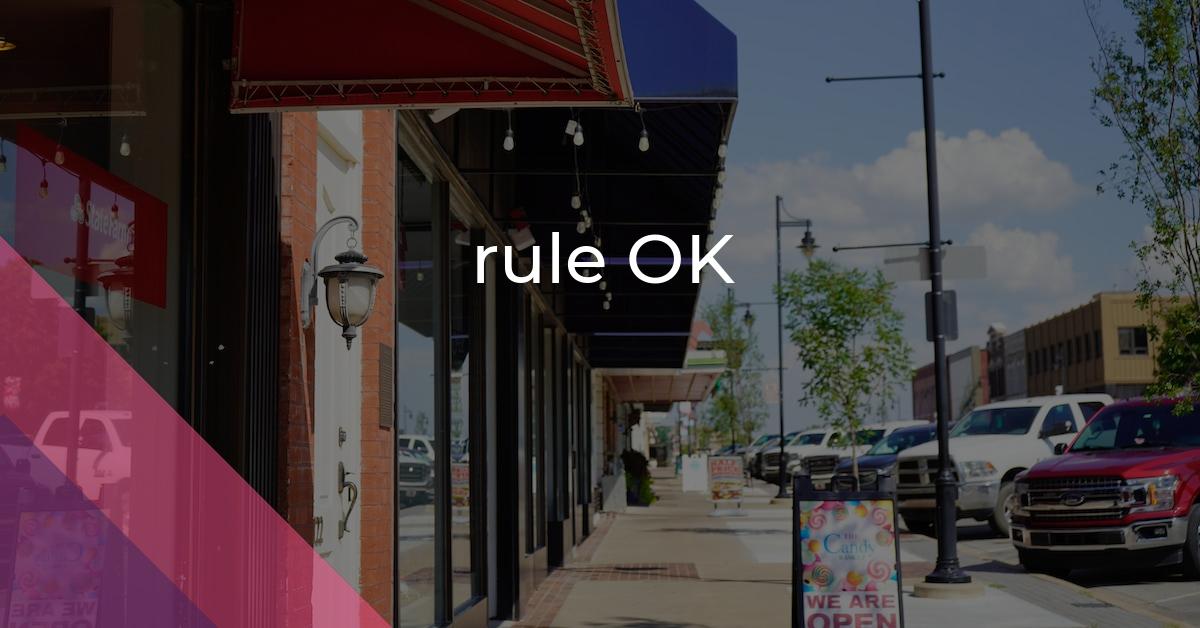rule OK: Idiom Meaning and Origin
What does ‘rule OK’ mean?
The idiom "rule OK" means to be in control or have authority, indicating a strong position of power or dominance. It is often used to convey confidence and assertiveness.

Idiom Explorer
The idiom "under control" means to have a situation managed or regulated, resulting in a state of calmness or order.
The idiom "rule in" means to include or consider something as being possible or valid. It is often used when discussing options or factors and deciding whether they should be taken into account.
The idiom "rule of thumb" means a general principle or guideline that is widely accepted and used in a particular context, often based on practical experience rather than precise measurements or exact rules.
"Roger that" is an idiom used to confirm that a message has been received, understood, and will be acted upon. It originated from military radio communications where "Roger" means "message received" and "that" emphasizes understanding. This idiom is now commonly used in everyday conversations and has a straightforward meaning.
The idiom "rock on" means to continue doing something in an enthusiastic and confident manner, often used as a way to express encouragement or admiration.
The idiom "right on" is used to express agreement or approval with something that has been said or done. It is an informal phrase often used in casual conversations to indicate support or enthusiasm.
The idiom "right of Genghis Khan" refers to having absolute power or authority, often used in a negative or critical context.
The idiom "ride tall in the saddle" means to display confidence, authority, and control in a situation. It is often used to describe someone who is self-assured and in a position of power.
The idiom "rest easy" means to feel calm, relaxed, and free from worry or anxiety. It implies a sense of trust or confidence that everything is under control and there is no immediate cause for concern.
"The Unspoken Authority: Deciphering 'Rule OK'"
"Rule OK" is an idiom that carries historical significance and is often seen as a symbol of rebellion and counterculture. Originating in the 1960s in the United Kingdom, this phrase was closely associated with the Mods, a youth subculture known for their stylish fashion and love for modern music genres like soul and rhythm and blues. For the Mods, "rule OK" was a way to assert their dominance and superiority.
The idiom itself can be dissected into two parts: "rule" and "OK." "Rule" refers to being in control, exerting power, and having authority over something or someone. It represents a sense of control and mastery. "OK," on the other hand, is a colloquial term that gained popularity in the 19th century and is used to indicate approval or acceptance. Combining these two elements, "rule OK" essentially conveys the idea of being in control and successful.
The origin of this idiom is closely tied to a specific event on September 12, 1964, at the Clacton Mod rally in the United Kingdom. During this event, tensions arose between the Mods and the Rockers, a motorcycle subculture known for their leather jackets and love for rock and roll music. To assert their authority, the Mods chanted "we rule OK," showcasing their dominance over the Rockers and asserting their own superiority.
After the Clacton Mod rally, "rule OK" gained immense popularity among the youth culture of the time. It quickly spread beyond the United Kingdom, becoming ingrained in popular culture around the world. The phrase was often associated with rebellion, defiance, and a rejection of traditional norms and authority.
Music and literature also embraced the idiom "rule OK." It found its way into song lyrics, like The Who's "The Kids Are Alright," further solidifying its connection to the youth culture of the era. In literature, the phrase was used to depict characters who defied societal conventions and embraced a nonconformist lifestyle.
While "rule OK" peaked in popularity during the 1960s, its cultural significance continues to resonate today. It serves as a reminder of the rebellious spirit and the desire for independence that characterized that era. Furthermore, the idiom evokes a sense of empowerment and the ability to defy societal expectations, making it a timeless expression with enduring meaning.
When we examine related idioms, we can see how they tie back to the concept of "rule OK." The idiom "in control" shares the idea of being in charge, having authority, and exerting power. Similarly, "rule in" emphasizes being dominant and successful. The phrase "reign supreme" parallels the notion of asserting authority and being superior to others. "under control" signifies maintaining mastery and having things handled. Finally, "right on" reflects approval and acceptance, similar to the colloquial term "OK" in "rule OK."
Overall, the idiom "rule OK" encapsulates a spirit of rebellion and counterculture that emerged in the 1960s. Its historical significance and cultural impact make it an enduring expression that still resonates today. As we explore related idioms, we see how they all connect to the core idea of being in control, asserting authority, and embracing a sense of empowerment.
Example usage
Examples of how the idiom *rule OK* can be used in a sentence:
- The boss wants to be in charge and make all the decisions - he thinks he can rule OK.
- Despite the protests, the government continues to pass laws that go against the wishes of the people - they believe their authority will rule OK.
- She always likes to be in control and have everything done her way - she believes she can rule OK.
More "Verb" idioms



